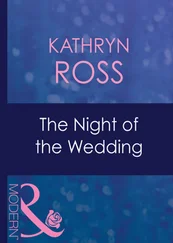“Hey, Skeeter.” He nods at me, shyly I think, compared to his way two nights ago. “Afternoon, Mister Phelan.”
“Hey there, son.” Daddy gets up from his rocking chair. “I’ll let you kids talk out here.”
“Don’t get up, Daddy. I’m sorry, but I’m busy today, Stuart. You’re welcome to sit out here with Daddy as long as you like.”
I go back in the house, pass Mother at the kitchen table drinking warm milk.
“Was that Stuart I saw out there?”
I go in the dining room. I stand back from the windows, where I know Stuart can’t see me. I watch until he drives away. And then I just keep watching.
THAT NIGHT, as usual, I go to Aibileen’s. I tell her about the deadline of only ten days, and she looks like she might cry. Then I hand her Louvenia’s chapter to read, the one I’ve written at lightning speed. Minny is at the kitchen table with us, drinking a Coke, looking out the window. I hadn’t known she’d be here tonight and wish she’d leave us to work.
Aibileen puts it down, nods. “I think this chapter is right good. Read just as well as the slow-wrote ones.”
I sigh, leaning back in my chair, thinking of what else needs to be done. “We need to decide on the title,” I say and rub my temples. “I’ve been working on a few. I think we should call it Colored Domestics and the Southern Families for Which They Work. ”
“Say what?” Minny says, looking at me for the first time.
“That’s the best way to describe it, don’t you think?” I say.
“If you got a corn cob up you butt.”
“This isn’t fiction, Minny. It’s sociology. It has to sound exact.”
“But that don’t mean it have to sound boring,” Minny says.
“Aibileen,” I sigh, hoping we can resolve this tonight. “What do you think?”
Aibileen shrugs and I can see already, she’s putting on her peace-making smile. It seems she has to smooth things over every time Minny and I are in the same room. “That’s a good title. A course you gone get tired a typing all that on top a ever page,” she says. I’d told her this is how it has to be done.
“Well, we could shorten it a little . . .” I say and pull out my pencil.
Aibileen scratches her nose, says, “What you think about just calling it . . . Help ?”
“ Help ,” Minny repeats, like she’s never heard of the word.
“ Help ,” I say.
Aibileen shrugs, looks down shyly, like she’s a little embarrassed. “I ain’t trying to take over your idea, I just . . . I like to keep things simple, you know?”
“I guess Help sound alright to me,” Minny says and crosses her arms.
“I like . . . Help ,” I say, because I really do. I add, “I think we’ll still have to put the description underneath, so the category’s clear, but I think that’s a good title.”
“Good is right,” Minny says. “Cause if this thing gets printed, Lord knows we gone need some.”
ON SUNDAY AFTERNOON, with eight days left, I come downstairs, dizzy and blinking from staring at pica type all day. I was almost glad when I heard Stuart’s car pull up the drive. I rub my eyes. Maybe I’ll sit with him awhile, clear my head, then go back and work through the night.
Stuart climbs out of his mud-splattered truck. He’s still in his Sunday tie and I try to ignore how handsome he looks. I stretch my arms. It’s ridiculously warm out, considering Christmas is in two and a half weeks. Mother’s sitting on the porch in a rocking chair, swathed in blankets.
“Hello, Missus Phelan. How are you feeling today?” Stuart asks.
Mother gives him a regal nod. “Fair. Thank you for asking.” I’m surprised by the coolness in her voice. She turns back to her newsletter and I can’t help but smile. Mother knows he’s been stopping by but she hasn’t mentioned it but once. I have to wonder when it will come.
“Hey,” he says to me quietly and we sit on the bottom porch step. Silently, we watch our old cat Sherman sneak around a tree, his tail swaying, going after some creature we can’t see.
Stuart puts his hand on my shoulder. “I can’t stay today. I’m heading to Dallas right now for an oil meeting and I’ll be gone three days,” he says. “I just came by to tell you.”
“Alright.” I shrug, like it makes no difference.
“Alright then,” he says and gets back in his truck.
When he has disappeared, Mother clears her throat. I don’t turn around and look at her in the rocking chair. I don’t want her to see the disappointment in my face that he’s gone.
“Go ahead, Mother,” I finally mutter. “Say what you want to say.”
“Don’t you let him cheapen you.”
I look back at her, eye her suspiciously, even though she is so frail under the wool blanket. Sorry is the fool who ever underestimates my mother.
“If Stuart doesn’t know how intelligent and kind I raised you to be, he can march straight on back to State Street.” She narrows her eyes out at the winter land. “Frankly, I don’t care much for Stuart. He doesn’t know how lucky he was to have you.”
I let Mother’s words sit like a tiny, sweet candy on my tongue. Forcing myself up from the step, I head for the front door. There is so much work to be done and not nearly enough time.
“Thank you, Mother.” I kiss her softly on the cheek and go inside.
I’M EXHAUSTED AND IRRITABLE. For forty-eight hours I’ve done nothing but type. I am stupid with facts about other people’s lives. My eyes sting from the smell of typing ink. My fingers are striped with paper cuts. Who knew paper and ink could be so vicious.
With just six days left, I go over to Aibileen’s. She’s taken a weekday off from work, despite Elizabeth’s annoyance. I can tell she knows what we need to discuss before I even say it. She leaves me in the kitchen and comes back with a letter in her hand.
“Fore I give this to you . . . I think I ought to tell you some things. So you can really understand.”
I nod. I am tense in my chair. I want to tear the envelope open and get this over with.
Aibileen straightens her notebook that’s sitting on the kitchen table. I watch as she aligns her two yellow pencils. “Remember, I told you Constantine had a daughter. Well, Lulabelle was her name. Law, she come out pale as snow. Grew hair the color a hay. Not curly like yours. Straight it was.”
“She was that white?” I ask. I’ve wondered this ever since Aibileen told me about Constantine’s child, way back in Elizabeth’s kitchen. I think about how surprised Constantine must’ve been to hold a white baby and know it was hers.
She nods. “When Lulabelle was four years old, Constantine . . .” Aibileen shifts in her chair. “She take her to a . . . orphanage. Up in Chicago.”
“An orphanage? You mean . . . she gave her baby away?” As much as Constantine loved me, I can only imagine how much she must’ve loved her own child.
Aibileen looks me straight in the eye. I see something there I rarely see—frustration, antipathy. “A lot a colored womens got to give they children up, Miss Skeeter. Send they kids off cause they have to tend to a white family.”
I look down, wondering if Constantine couldn’t take care of her child because she had to take care of us.
“But most send em off to family. A orphanage is . . . different altogether.”
“Why didn’t she send the baby to her sister’s? Or another relative?”
“Her sister . . . she just couldn’t handle it. Being Negro with white skin . . . in Mississippi, it’s like you don’t belong to nobody. But it wasn’t just hard on the girl. It was hard on Constantine. She . . . folks would look at her. White folks would stop her, ask her all suspicious what she doing toting round a white child. Policeman used to stop her on State Street, told her she need to get her uniform on. Even colored folks . . . they treat her different, distrustful, like she done something wrong. It was hard for her to find somebody to watch Lulabelle while she at work. Constantine got to where she didn’t want to bring Lula . . . out much.”
Читать дальше












